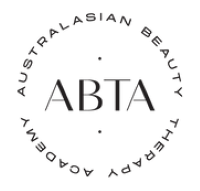
How do I become a camera assistant?
Advanced Diploma of Screen and Media
- There are no mandated entry requirements.





Certificate III in Screen and Media
- There are no mandated entry requirements.








Diploma of Screen and Media
- There are no mandated entry requirements.








Certificate II in Creative Industries
- There are no mandated entry requirements.



Certificate III in Screen and Media (Film & Television)
- There are no mandated entry requirements.
 North Metropolitan TAFE
North Metropolitan TAFE
Certificate IV in Screen and Media (Film and Video Production)
- There are no mandated entry requirements.
 TAFE NSW
TAFE NSW
Related occupations
Audio Visual Technician
An Audio Visual Technician operates equipment for productions, ensuring sound and vision quality while collaborating with the team.
Lighting Technician
A Lighting Technician manages and adjusts lighting for productions, ensuring optimal effects and collaborating with the production team.
Production Assistant
A Production Assistant aids film, television, or stage productions by ensuring performers are ready, managing schedules, and resolving issues effectively.
Radio Producer
A Radio Producer coordinates program production, collaborates with announcers, prepares scripts, and sources music while managing multiple tasks creatively.
Sound Engineer
A Sound Engineer ensures audio quality during various productions, using equipment to monitor and edit sound while collaborating within a team.
Assistant Editor
An Assistant Editor collaborates with the editing team to assemble footage, audio, and effects, following the editor's guidance.
Stage Technician
A Stage Technician assists with various tasks in productions, operating equipment and ensuring props are ready for performers while staying organised.
Film Editor
A Film Editor selects and arranges scenes, ensures smooth flow, incorporates music and effects, and uses editing tools to fulfil the director's vision.
Screenplay Writer
A Screenplay Writer creates scripts for film or television, often developing original ideas or adapting existing works while collaborating with crews.
Grip
A Grip sets up equipment for camera support in film and television, ensuring stability and movement while collaborating with the crew.
Gaffer
A Gaffer manages lighting for film, television, and stage productions, leading a team while collaborating with directors on lighting design.
Director of Photography
A Director of Photography oversees the visual aspects of film or television, leading camera and lighting teams to achieve the desired look.
Wardrobe Assistant
A Wardrobe Assistant sources, adjusts, or creates costumes for TV, film, or theatre productions, working flexibly within a team during live or recorded events.
Props Assistant
A Props Assistant manages and creates props for film, television, or theatre productions, ensuring all items are available on schedule.
Podcaster
A Podcaster creates audio content for digital audiences, specialising in topics like sports or comedy, and manages recording and editing tasks.
Content Creator
A Content Creator produces diverse media content for digital platforms, including writing, filming, editing, and engaging with audiences.
Visual Technician
A Visual Technician operates visual equipment during production, supports rehearsals, follows briefs, and works in a team with irregular hours.
Broadcast Technician
A Broadcast Technician ensures seamless media broadcasts, managing equipment, solving issues, and following production briefs in various media formats.
Film and TV Production Manager
A Film and TV Production Manager coordinates projects, manages teams, handles logistics, and ensures production schedules and quality standards are met.
Broadcast Production Manager
A Broadcast Production Manager coordinates schedules, staff, and equipment for TV and radio shows, resolving issues swiftly while ensuring smooth broadcasts.
Video Production Manager
A Video Production Manager oversees media content creation, coordinates filming, manages production teams, and ensures schedules are met.
Radio Broadcaster
Radio broadcasters present news and stories, conduct interviews, manage music playlists, and prepare scripts while balancing on-air and off-air duties.
Casting Agent
Casting Agents, or talent agents, find and represent performers for various media, interviewing candidates and liaising with industry professionals.
Video Producer
Video Producers create and oversee film and video content for various sectors, including film, television, education, and marketing.
Broadcaster
Broadcasters announce news, host shows, and present radio programs, increasingly engaging in podcasting and other media formats.
Online Content Creator
An Online Content Creator develops engaging multimedia content for digital platforms, collaborating with marketing teams to enhance brand presence and using analytics to improve future content.
Digital Producer
A Digital Producer oversees the production and delivery of digital content, coordinating projects, collaborating with teams, and analysing performance to enhance engagement.
Videographer
A Videographer captures high-quality video for events and projects, handling shoots, editing footage, and collaborating with clients.
Sound Designer
A Sound Designer creates and manipulates audio for media, enhancing experiences through soundscapes, effects, and collaboration with directors.
Foreign Correspondent
A Foreign Correspondent reports on international events, conducting research and interviews to produce accurate and compelling news stories.
Studio Executive
A Studio Executive oversees media project production, making decisions on development, budgets, and resource management while negotiating with stakeholders
Film Director
A Film Director oversees film production, managing everything from idea development to shooting and editing, ensuring the creative vision is fulfilled.
Filmmaker
A Filmmaker creates visual narratives across media by developing scripts, directing actors, overseeing production, and ensuring audience engagement.
Camera Operator
Camera Operators capture high-quality video for films and TV, working on location or in studios, focusing on composition, lighting, and collaboration.
Film Producer
A Film Producer manages all production stages, coordinates teams, secures funding, oversees budgets, and handles marketing and distribution strategies.
Production Planner
A Production Planner ensures efficient manufacturing by coordinating schedules, managing inventory, analysing data, and resolving production issues.
Cinematographer
A Cinematographer captures the visual essence of film and TV, working with directors on lighting, camera angles, and shot composition.
Location Manager
A Location Manager oversees site operations, supervises staff, ensures safety compliance, manages resources, and enhances customer experience.
Associate Producer
An Associate Producer aids in project coordination and management for film, TV, or digital media, ensuring deadlines and budgets are met.
Music Video Director
A Music Video Director leads the creative vision, production, and filming of music videos, collaborating with artists and managing production teams.
Post Production Manager
A Post Production Manager ensures film and video projects are completed on time and within budget, overseeing editing and liaising with clients.
Film Score Composer
A Film Score Composer creates music to enhance films' mood, working with directors, composing, arranging, and revising based on feedback.
Stage Manager
A Stage Manager coordinates all aspects of a production, managing schedules, supervising the crew, and ensuring smooth performances while maintaining safety standards.
Set Designer
A Set Designer creates and conceptualises environments for productions, collaborating with creatives to ensure visual appeal and functionality
Television Producer
A Television Producer oversees programme production from concept to delivery, managing budgets, schedules, and collaborating with production teams.
Broadcast Engineer
Broadcast Engineers manage and maintain technical equipment for radio and TV broadcasting, ensuring smooth operations and troubleshooting issues.
Lighting Designer
Lighting Designers create and implement lighting designs for various media, collaborating with teams to enhance visual impact and ensure effective execution.
Theatre Director
Theatre Directors conceive and implement artistic visions for productions, directing actors and coordinating all elements to bring scripts to life.
Media Advisor
Media Advisors manage and enhance an organisation's public image through strategic communication, crafting press releases, coordinating media, and advising on strategies.
Sports Broadcaster
A Sports Broadcaster delivers live sports coverage, commentates on games, provides analysis, and collaborates with teams to create engaging sports content across platforms.
Theatre Technician
A Theatre Technician operates and maintains technical systems, including audio-visual equipment and lighting, to ensure seamless productions.
Production Designer
A Production Designer shapes the visual style of productions, manages budgets, and coordinates teams to ensure sets are ready for filming.
Common questions
How much does a Camera Assistant earn?
In Australia, a full time Camera Assistant generally earns $1,150 per week ($59,800 annual salary) before tax. This is a median figure for full-time employees and should be considered a guide only. As you gain more experience you can expect a potentially higher salary than people who are new to the industry.
What are the job opportunities for a Camera Assistant?
There has been a strong increase in the number of people working as a Camera Assistant over the last five years. There are currently 2,100 people in this industry and many of them are Camera Assistants. Camera Assistants may find work in larger towns and cities where productions are based.
Source: Australian Government Labour Market Insights
How do I become a Camera Assistant?
A Certificate III in Screen and Media is a great qualification to get you started in a career as a Camera Assistant. This course provides hands on learning and allows you to choose electives to suit your career plans. You could further your studies with a Diploma of Screen and Media which covers various aspects of working in television, film and visual effects.
Further reading


Choosing a security licence course in Australia: A step-by-step guide for jobseekers
10th November 2023)

